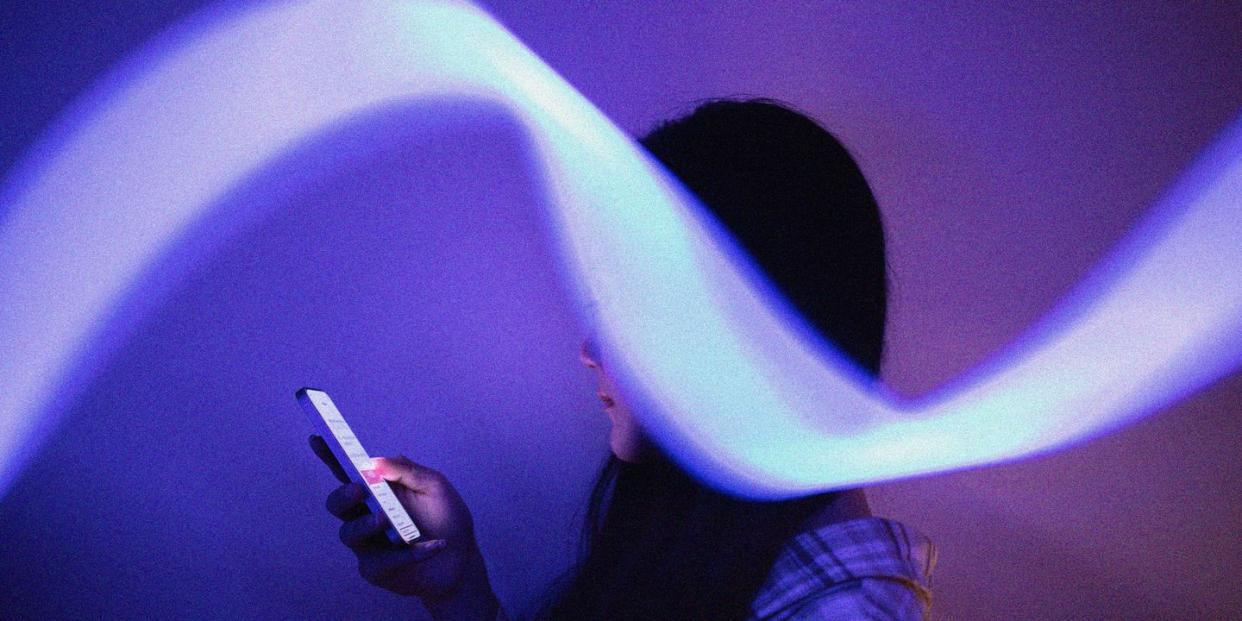People are befriending their Amazon Alexas and it makes sense

“Alexa, are we friends?” Dominique asks of her smart speaker in the dead of night in Netflix’s psychological thriller Mr Robot in 2015. She attempts to start a rapport with the device: “We live together; I feel like I don’t even know you,” soon firing questions into the empty flat: Alexa, what’s your favourite colour?” (“Infrared is super pretty”), “Alexa, do you have a boyfriend?” (“I’m not the dating kind”), “Alexa, are you happy?” (“I’m happy when I’m helping you”).
The scene may be relatable to anyone who’s interacted with a smart speaker in moments of curiosity or sheer boredom. In 2013, Spike Jonze stretched this idea to the extreme in his film Her, in which Joaquin Phoenix falls in love with his operating system (Scarlett Johansson). A more personified version saw Caleb (Domhnall Gleeson) develop feelings for the robot Ava (Alicia Vikander) in Ex Machina in 2014.
But while film and TV have been portraying human-machine relationships for decades, new research suggests we may be edging ever closer to these imagined futures. The research that surveyed 100 smart device owners and 15 non-owners, found that digital assistants like Amazon’s Alexa, Apple’s Siri and Google Home are offering owners another bonus on top of checking the weather or converting US cooking measurements: friendship.
It also found that smart speaker use doubled during the pandemic, and that 39% of households now own one, with some describing their gadget as being like a companion, and that they liked being able to chat to it. “Living alone it’s like having a friend in the house,” a man from the West Midlands says in the report. “When there is nobody here, I’ve got a companion to speak to,” another, from Scotland said.
The stats on loneliness are pretty galling. One recent study found that one in 20 adults in England felt lonely “often” or “always”. The number of over-50s experiencing loneliness is set to reach two million by 2025/6, which will be a 49 per cent increase in 10 years.
Our increasingly tech-filled lives are only deepening these feelings of isolation. When you think about it, most of our socialising really does take place online nowadays. Dating apps are the norm, group chats often take the place of IRL meet-ups and remote working is in vogue, too. Who else has recently clocked their screen time and had to have a quiet word with themselves?
It may also be easy to convince ourselves that we are getting our companionship needs filled by devices, when actually the difference between tech-based communication and real-life friendships is stark. “TV, radio or smart devices are no substitute for human interaction and it’s vital that we remember that relationships are about more than stimulation and reducing the sense of being alone,” says Caroline Abrahams, Charity Director at Age UK. “They are an important part of people’s identity, sense of purpose and connection to their community – neither ageing nor the need for care and support diminish that.”

Robin Hewings, programme director of the Campaign to End Loneliness, agrees. “It’s good news that for some people they can provide a welcome feeling of companionship and make our homes feel like a more friendly place,” she says. “However, this is likely to be a very slight form of connection. To address longer term loneliness, we need to make sure that lonely people are given support to reconnect with others and move on from their loneliness.”
As the recent release of AI chatbot ChatGPT – a human-like system that has gone viral for its impressive assimilation that can answer questions, write essays and perform helpful tasks – it’s safe to say that artificial intelligence is getting smarter than ever, super-fast. If you’re in the market for an imaginary Seinfeld scene, or a song about Elon Musk in the style of Bob Dylan, ChatGPT can deliver that in a matter of seconds. There’s no doubt our smart devices will soon be capable of these sorts of interactions. How long until we find ourselves developing a friendship, or accidentally flirting with our smart speakers?
It's hard to tell if these developments are exciting, worrying or quite sad – especially when you consider the marked gender bias in AI (another note of resemblance to Her and Ex Machina) with all voice assistants being female (several may come with a male option, but the default is always female), something which has caused outrage for subconsciously reaffirming the idea that women are subservient and there to “assist”.
And while a full-blown romantic relationship with a lifeless cylinder is probably not on the cards just yet, maybe it’s not that far off. A 2020 survey by WeVibe, a sex toy company, found that 14 per cent of men they asked had been turned on by their smart speaker’s “comforting and authoritative voice”. Smart devices can, now, also control many other bits of tech, including vibrators. Could this, er, be a recipe for disaster?
When you tell Alexa, “I’m feeling lonely”, her advice doesn’t involve renewing your Amazon Prime subscription, and is actually pretty solid in terms of generating real, human connection. “Sorry to hear that,” she says. “Talking to a friend, listening to music or taking a walk may help. I hope you feel better soon.” But could we be directing people towards more helpful services, or encouraging connection to break out of the cold silence that remains when the device switches off?
Providing support like this should be the bare minimum, though – and they could go further (although they do provide great assistance to people with disabilities). Friends of mine use smart speakers all the time, but it’s safe to say they’d never choose chatting to Siri instead of going to the pub. Perhaps we should be looking at the root causes of isolation in this country before we start placing blame on the little machine in the corner.
Maybe they’re not really our evil overlords after all…
You Might Also Like


